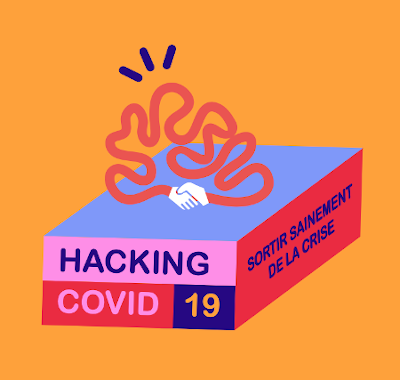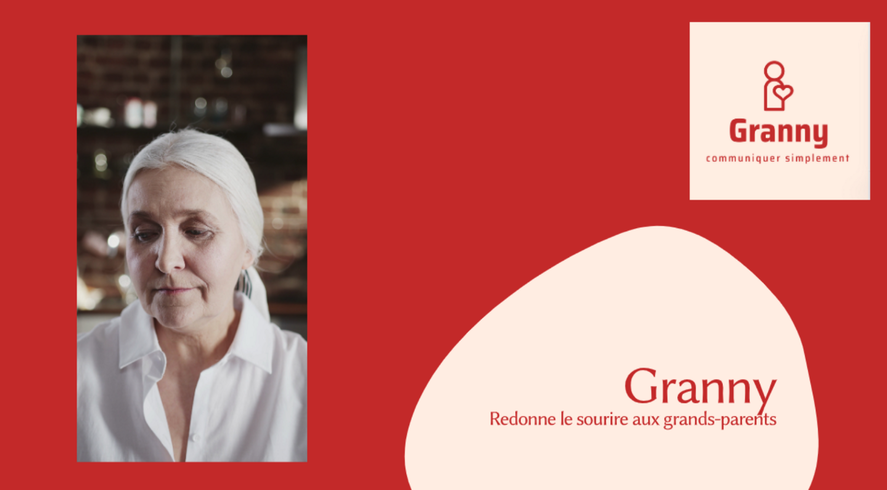Success of the Hackathon "Hacking Covid 19"!
The “Hacking covid 19" hackathon, co-organized in April by young graduates from HEC Paris and students from Polytechnique and Sciences Po Paris, gathered 1,400 participants to develop 103 projects in 48 hours!
Participants were 50% students and 50% full-time employed. The majority (87%) had never participated in a hackathon! It was 48 hours of intense reflection and work where they met in virtual exchanges to initiate and launch projects contributing to a collective way out of the health crisis.
The aim of this hackathon was to develop, in a minimum of time, solutions that could respond to the most urgent health, social and financial problems caused by the COVID-19 epidemic.
Participants were divided into 4 challenges: 1/ Helping our health workers; 2/ Helping our governments; 3/ Helping our businesses; 4/ Helping our communities.
The event took place online, on the BeMyApp platform, in partnership with Engie, Allianz, Michelin, Auspex International, and supported by the HEC IDEA center, the X-HEC ENTREPRENEURS master’s degree, Moho, SchooLab, Urban Linker, XMP Consult, Slack, the HEC SEED student association, etc.
"An exceptional mobilization on all sides, full of positive energy, determination and willingness to contribute to a way out of the crisis!” explained Camille Zivré and Lucille Collet, co-founder of the event! 52 nationalities were represented. The Polytechnic University Mohammed VI (Morocco) and Dauphine through their incubators quickly joined the adventure! Both also underlined “An honorable parity: 58% men, 42% women! »
A DEMATERIALIZED YET INTENSE CHALLENGE
The hackathon started by putting the participants in contact with each other, matching teams according to ideas. Once the idea was found, the project was declared on the platform to be followed in real time by the organizing team and the mentors. The teams then had access to an impressive pool of resources: studies, data tools, already existing solutions to give a good overview of the issues at stake and the needs that had not yet been addressed. A number of webinars and conferences were also available to help with the Hackathon methodology. This was a phenomenal work noted by our students and alumni organizers of the event!
Many experts supported the participants in “the formulation of their working hypothesis, to generate concepts and ideas, etc.” “It was a very positive experience for me, as I’m used to the exercise, it was my first totally dematerialized exercise.” explained Antoine Rigaudias.
Yves Carron - “Hacking-Covid 19 was not my first hackathon but it was distinguished by its hyper-virtuous intensity. Motivated teams and mentors, a particularly fluid organization, and ultimately solid solutions for this unprecedented crisis. To be redone”
Satisfaction was present on the participant side as well: Jonathan Dao, participant of the Safeline team: “This Hackathon was exhilarating and extremely interesting for the whole team! We started the hackathon with an idea, and today we have arrived at the first version of an application! Managing a project and seeing it come to fruition is unbelievable.”
Samantha Deversin of the CoronaStatus project: “Poignant, exciting and thrilling! Of course, Hacking Covid-19 is an intense challenge to take up: collaborate, innovate, push the existing, and this in 48 hours. But, without a doubt, hackers live an intense and absolutely unforgettable human adventure!”
6 winners and 20 best projects identified, 103 projects carried out
29 projects dealt with assistance to health professionals, 18 with government institutions, 22 with businesses and 33 with communities.
Six winners were chosen by six juries chaired by Sylvain Theveniaud, Founder and Director of the Allianz Accelerator. 20 best projects were also identified for follow-up after the hackathon.
Team Granny won first place. Granny offers a protocol allowing fluidity and automation of communication between residents of nursing homes and their loved ones: online appointment by the family, intuitive interaction with the communication tool for residents, total autonomy to converse with their family. The final goal is to relieve the EHPAD staff and simply connect with the seniors.
Loïs Lequesne from Team Granny: “At the beginning, the three of us signed up without any expectations, just the will to be useful during the crisis. We met on the hackathon forum and after a few words exchanged our team was born. After 48 hours of hard work (and very little sleep) GRANNY was born. Already super happy with what we had accomplished in such a short time, our efforts were largely rewarded! Without this award we would never have imagined that we would have been able to take our project so far. This hackathon has taught us that anything is possible!"
Discover here the ranking and description of the selected projects.
A FOLLOW-UP & early impacts
The adventure obviously doesn’t end there. The organisers are determined to see the best projects through to the end, and to ensure that each project has every opportunity to become a reality.
Some projects have already been noticed during the hackathon by investors (this is the case of MIDAD).
Other projects benefit from the network to develop, such as Ecoledigitale, a solution led by Fabrice Teeg-Wendé Guéné, a young graduate in journalism, which enables Burkinabé children to receive education during confinement. Catherine Soundirassou, co-founder of EELUX and member of the jury, became the coach of the project following the hackathon and contacted her HEC classmate Ben Cheick EMBA 2014, CEO of Orange Burkina Faso, who spontaneously agreed to offer the internet subscription to all families during the confinement. A very nice outcome: all the children of an entire country will be able to have access to education thanks to the take-off of this project!
Not everyone was able to join the adventure, but the momentum is there. The HEC Africa community in particular is preparing an ideathon in the coming weeks... To be continued!

